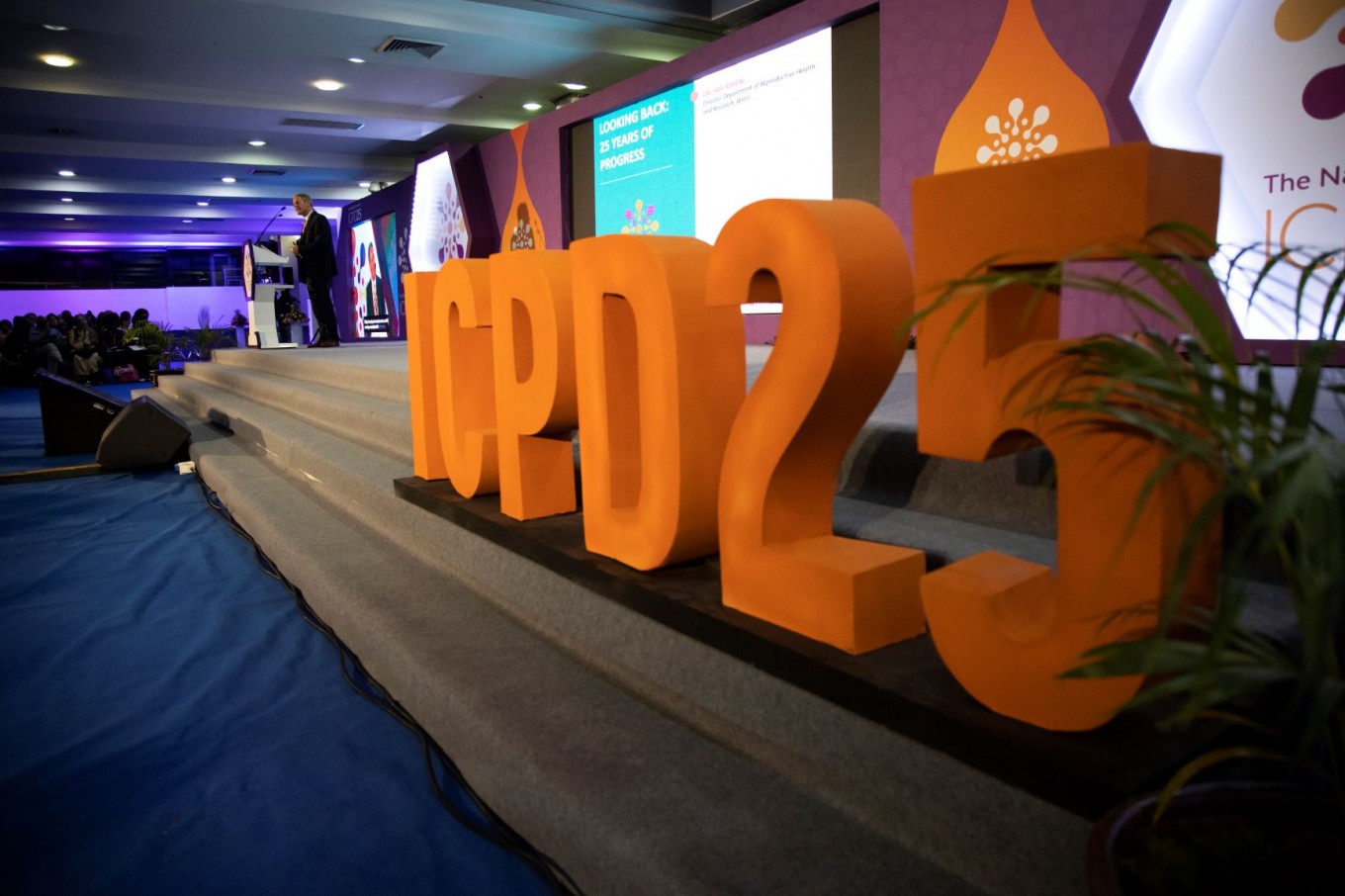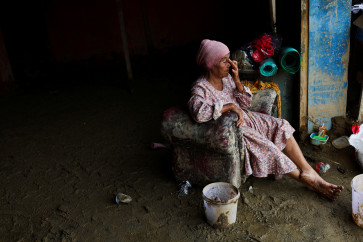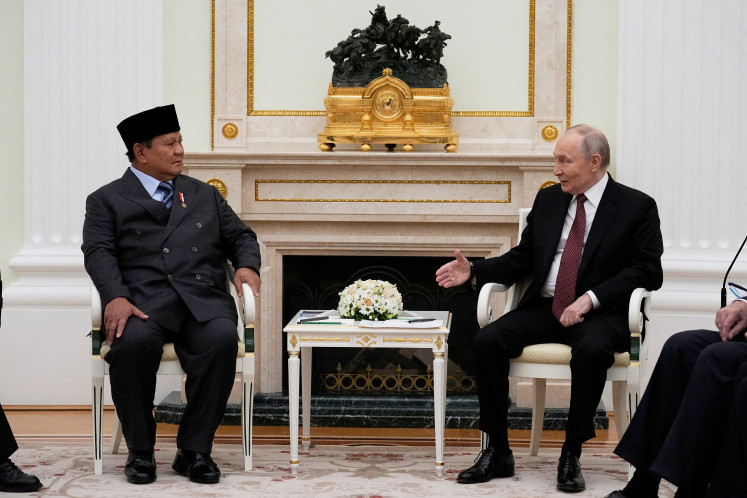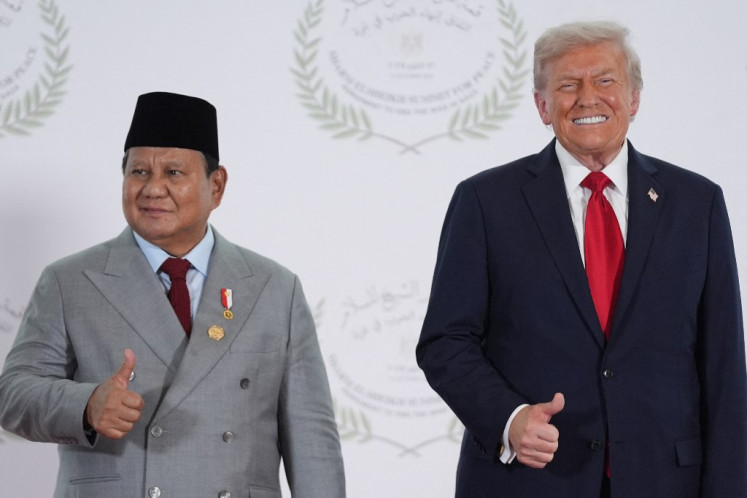Popular Reads
Top Results
Can't find what you're looking for?
View all search resultsPopular Reads
Top Results
Can't find what you're looking for?
View all search resultsHow Trump, COVID-19 endanger sexual, reproductive health rights
Sexual and reproductive health is and has always been a critical part of any humanitarian response.
Change text size
Gift Premium Articles
to Anyone
U
nited States President Donald Trump, the COVID-19 pandemic, and sexual and reproductive health and rights (SRHR) are a dangerous combination.
Amid the worldwide surge in COVID-19 cases, the Trump administration urged the removal of any references to sexual and reproductive health (SRH) and related services from the United Nations’ COVID-19 Global Humanitarian Response Plan (HRP).
The suggestion shocked the global health community, which has regarded the US a champion in advancing SRHR since it demonstrated its strong commitment to the issue in 1994 at the first International Conference on Population and Development (ICPD) in Cairo.
In a letter to UN Secretary-General António Guterres in mid-May, acting administrator John Barsa of the US Agency for International Development (USAID) called on the UN to “stay focused on life-saving interventions” and exclude abortion as “essential health care”, all the while emphasizing the country’s US$650.7 million contribution to the pandemic response.
Sexual and reproductive health is and has always been a critical part of any humanitarian response. Failing to provide SRH services will have a devastating impact on the lives of millions of people in lower-middle income countries, including Indonesia.
Global public health experts and women’s rights activists condemned the US attempt, stressing that SRH went beyond abortion services and also covered HIV/AIDS testing, cancer screening, child marriage awareness and education and human trafficking.
The United Nations Population Fund (UNFPA), together with Avenir Health, Johns Hopkins University (USA) and Victoria University (Australia), studied the impacts of the pandemic on reproductive health services and situations. The study projected that some 47 million women in 114 low and middle income countries would be unable to use modern contraceptives if the average COVID-19-related disruption (lockdown) lasted six months.
The study also said that six-month lockdowns compounded by major service disruptions due to COVID-19 would cause an additional 7 million unintended pregnancies, 31 million cases of gender-based violence and 13 million child marriages that would not have occurred otherwise between 2020 and 2030.
Trump’s attempt to curtail SRH services as part of the UN’s global response framework was the peak of his administration’s “global gag rule” policy, which prohibits foreign nongovernmental organizations (NGOs) from using private, non-US funds to provide comprehensive and safe abortion services or related information and referrals if the NGOs wanted to continue receiving US assistance.
In addition to reproductive health and family planning, Trump’s expanded global gag rule now applies to all US global health assistance to impact a broad range of programs: maternal and child health, nutrition, HIV/AIDS, malaria, tuberculosis, infectious diseases, neglected tropical diseases, water sanitation and hygiene.
Washington-based Population Action International (PAI) organized a roundtable for journalists and experts in Dubai that featured SRHR experts and practitioners from Indonesia, Bangladesh and Nepal to discuss the impacts of the US global gag rule in Asia.
Jonathan Ruck, the PAI senior director for policy and advocacy, said in an interview: “The Trump administration has said things are business as usual, that no services are ending as a result of the policy.
“We simply know that’s not the case. We’ve seen clinics close and the impact on communities that rely on those facilities, and delays in finding organizations to take over service delivery – if it’s even possible to find replacements – are also creating a challenge.”
Through field studies in Cambodia and Bangladesh, PAI recognized that impacts were being felt in Asia because of the US’ outsized role in SRHR and because no other donor focused on these services in the same way.
“When the US pulls back, we see an adverse impact,” Ruck explained.
Siswanto Agus Wilopo, the director of the Gadjah Mada University (UGM) Center for Reproductive Health who represented Indonesia at the event, said that Indonesia had the highest maternal mortality ratio (MMR) in ASEAN with 350 deaths per 100,000 deliveries, compared to only 11 deaths per 100,000 deliveries in Singapore. Unsafe abortions were believed to be the cause of 10 percent of all maternal deaths in Indonesia.
“Safe abortion is only legal in Indonesia under specific circumstances (rape, incest, or when the woman’s life is at risk). This legal context – along with abortion-related stigma and discrimination – forces many girls and women to seek out unsafe abortions,” he said.
The global gag rule has affected numerous NGOs that provided reproductive health services, including the International Planned Parenthood Federation’s local member, the Indonesian Planned Parenthood Association, also known as the Perkumpulan Keluarga Berencana Indonesia (PKBI). The PKBI operates health clinics serving huge swathes of local populations in 26 out of 34 Indonesian provinces.
“The PKBI provides family planning services, reproductive health services, including safe abortion, [and] mother and child health care. Not funding the PKBI means cutting many of its services, including immunization and nutrition programs for infants and children under five,” said Siswanto.
“No specific actions have been taken by the Indonesian government on the issue,” he added.
“It would be wise for us to think about providing safe abortion services for women and girls in need rather than [leaving] them to seek hazardous and deadly medicines and clandestine practices offered on the black market,” Siswanto said.
Ruck added: “We have seen the US [policy] embolden policymakers in other countries to align with opposing women and girls’ access to SRHR. It is not just about abortion, it is about the entire continuum of services.”
Ruck also noted that the majority of American voters were opposed to the policy.
A study by PAI and the Center for Health and Gender Equity (CHANGE) showed that 79 percent of Americans voters agreed that the US had a role in ensuring the health of women and girls around the world, while 77 percent of respondents believed this to be a moral obligation. The study also revealed that a solid majority of respondents (60 percent) favored the US providing health assistance to other countries.
Heading toward the US presidential election in November, PAI and international women’s rights advocates are hopeful that a new administration could not only rescind the global gag rule, but also repeal the policy for the betterment of the health of millions around the world.
***
The writer is a journalist and guest participant to the Population Action International PAI roundtable in June 2020 by invitation from EastWest PR.










